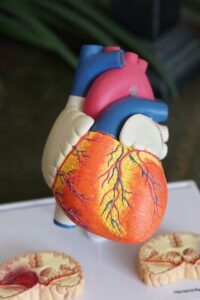![]()
Ageing is a natural process that affects everyone, and with the global population of people aged 60 years and older projected to reach 2 billion by 2050, it’s important to understand the impact of ageing on health. The World Health Organization (WHO) has identified several key facts about ageing and health that are essential for understanding the unique health needs of older adults.
- Ageing is the strongest risk factor for noncommunicable diseases (NCDs), such as cardiovascular disease, cancer, diabetes, and chronic respiratory disease. These diseases are responsible for the majority of deaths among older adults and are often linked to lifestyle factors such as tobacco use, unhealthy diet, and lack of physical activity.
- The leading causes of death among older adults are NCDs, with cardiovascular disease being the leading cause. Cardiovascular disease, including heart disease and stroke, is responsible for over 17.9 million deaths per year worldwide, a majority of which occur in people aged 60 and older.
- Ageing is also associated with an increased risk of falls, cognitive decline, and depression. As people age, their risk for falls increases due to changes in vision, muscle strength, and balance. Cognitive decline, including dementia, is also more common in older adults. Depression is also more common in older adults, and it’s often underdiagnosed and undertreated.
- Regular physical activity is important for maintaining good health in older adults. According to WHO, older adults should be physically active for at least 150 minutes per week. This can include activities such as walking, cycling, and swimming, and it can help to reduce the risk of NCDs, improve mental health, and prevent falls.
- Adequate nutrition is also important for older adults. As people age, they may have difficulty chewing or swallowing, which can make it difficult to maintain a healthy diet. Older adults are also at risk for malnutrition and micronutrient deficiencies, which can lead to a range of health problems.
- Vaccination is an important tool in preventing illness and death among older adults. Vaccines are available for many diseases that are more common or more severe in older adults, such as influenza and pneumococcal disease.
- Regular health screenings are also important for older adults. Screenings can help detect and prevent disease in its early stages, such as mammograms and colon cancer screenings.
- Social support and community-based interventions can help older adults maintain their independence and improve their quality of life. This includes providing access to health care, social services, and housing options that are appropriate for older adults.
- WHO recommends that countries develop policies and programs to promote healthy ageing and support older adults in their communities. This includes providing access to health care, social services, and housing options that are appropriate for older adults.
- It’s important to keep in mind that aging is not a disease and that older adults can live healthy, active lives with the right support and resources. With an aging population, it’s essential that countries take steps to promote healthy ageing and support older adults in their communities.
In conclusion, WHO has identified several key facts about ageing and health that are essential for understanding the unique health needs of older adults. Ageing is a natural process that affects everyone and with the global population of people aged 60 years and older projected to reach 2 billion by 2050, it’s important to understand the impact of ageing on health. It’s important to keep in mind that aging is not a disease and that older adults can live healthy, active lives with the right support and resources. With an aging population, it’s essential that countries take steps to promote healthy ageing and support older adults in their communities.







